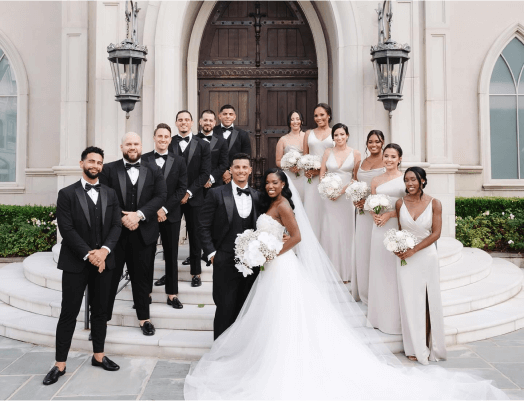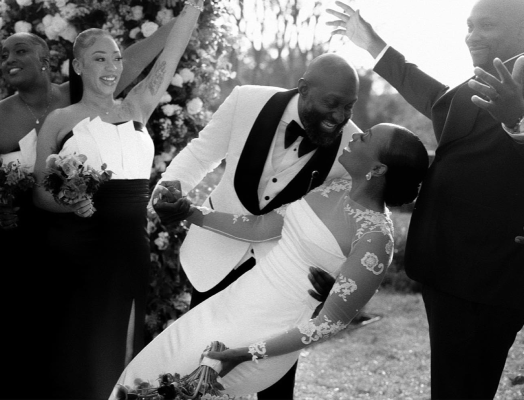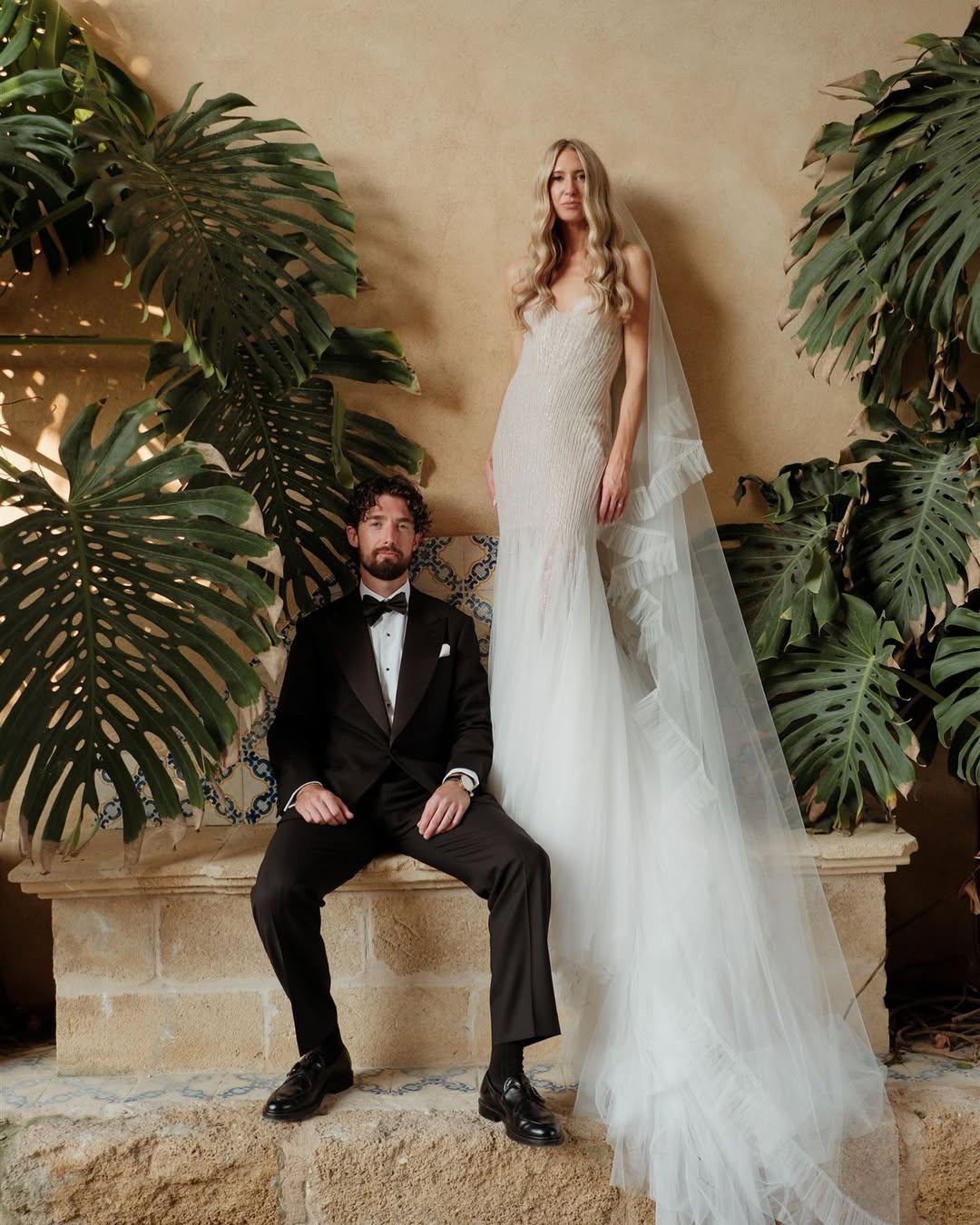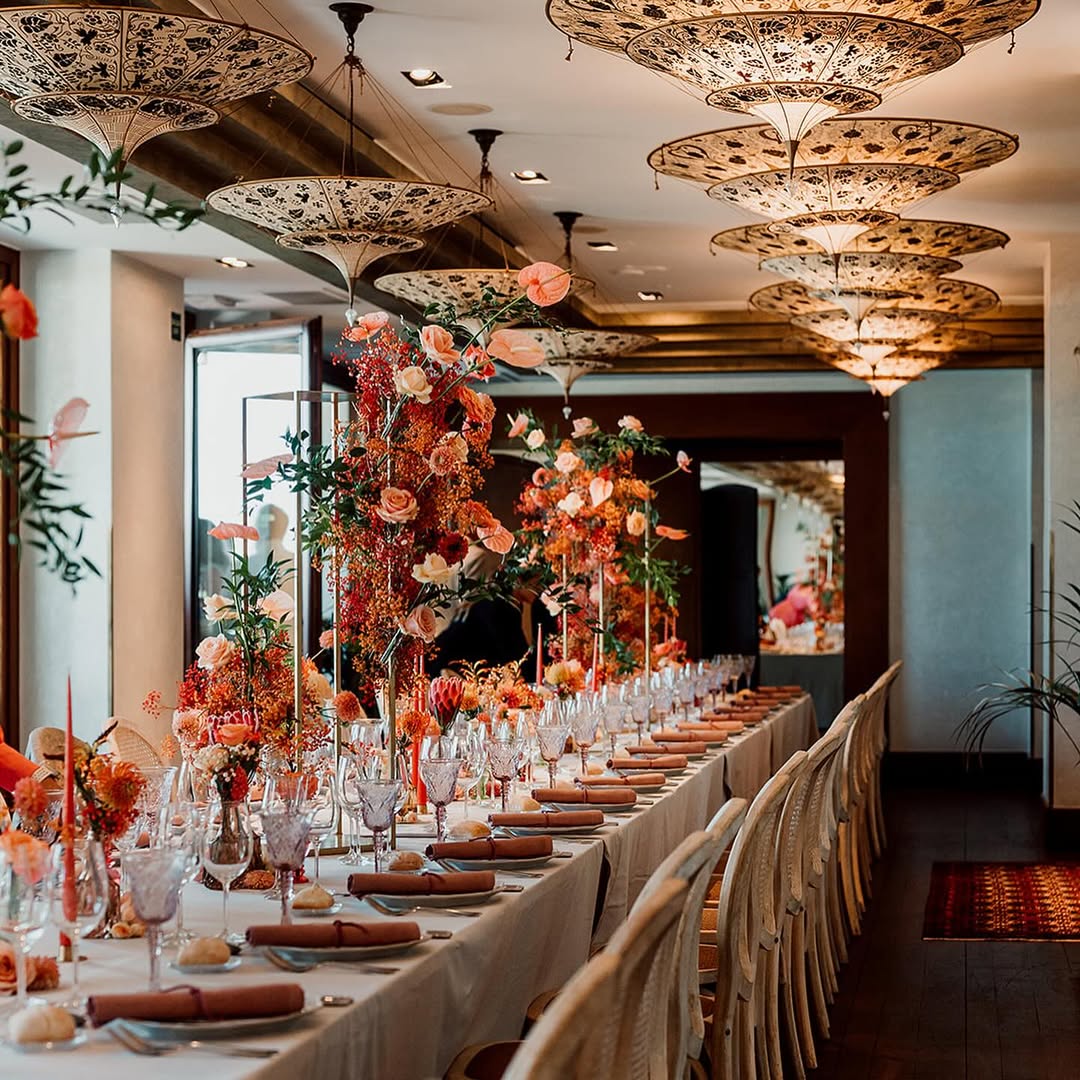Step by Step Wedding Planning Checklist: 16 weeks to Go
- Author: Natali Grace Levine
- Reading time: 16 min 7 sec
- Publication date: 09/10/2025
- Updated: 01/06/2026
- 16 Weeks Before: Foundation & Big Decisions
- 15 Weeks Before: Vendor Confirmations
- 14 Weeks Before: Attire & Beauty
- 13 Weeks Before: Menu & Catering Details
- 12 Weeks Before: Invitations & Stationery
- 11 Weeks Before: Legal & Practical Matters
- 10 Weeks Before: Rehearsal & Pre-Wedding Events
- 9 Weeks Before: Final Vendor Coordination
- 8 Weeks Before: Final Details & Backup Plans
- 7 Weeks Before: Personal Preparations
- 6 Weeks Before: Final Confirmations
- 5 Weeks Before: Ceremony Rehearsal
- 4-1 Weeks Before: Final Countdown
- Your Detailed Checklist for the Wedding Day
The key to successful short-timeline wedding planning lies in prioritization, decisive decision-making, and smart delegation. While couples with longer engagement periods have the luxury of deliberating over every detail for months, you'll need to trust your instincts and move forward with confidence. This can actually be liberating – you'll spend less time second-guessing choices and more time enjoying your engagement.
Throughout this journey, remember that your wedding day is about celebrating your love story with the people who matter most to you. Every vendor you choose, every detail you plan, and every decision you make should reflect who you are as a couple. Don't get caught up in what you think a wedding "should" look like – focus on what feels authentic to you both.


We've structured this step by step wedding planning guide to help you tackle the most time-sensitive and important elements first, then gradually work toward the finishing touches that will make your day uniquely yours. Each week builds on the previous one, ensuring nothing falls through the cracks while keeping you organized and on track.
You're about to embark on an incredible 16-week adventure that culminates in one of the most meaningful days of your life. Let's dive in and make it happen!
Find Your Perfect Wedding Vendors
16 Weeks Before: Foundation & Big Decisions


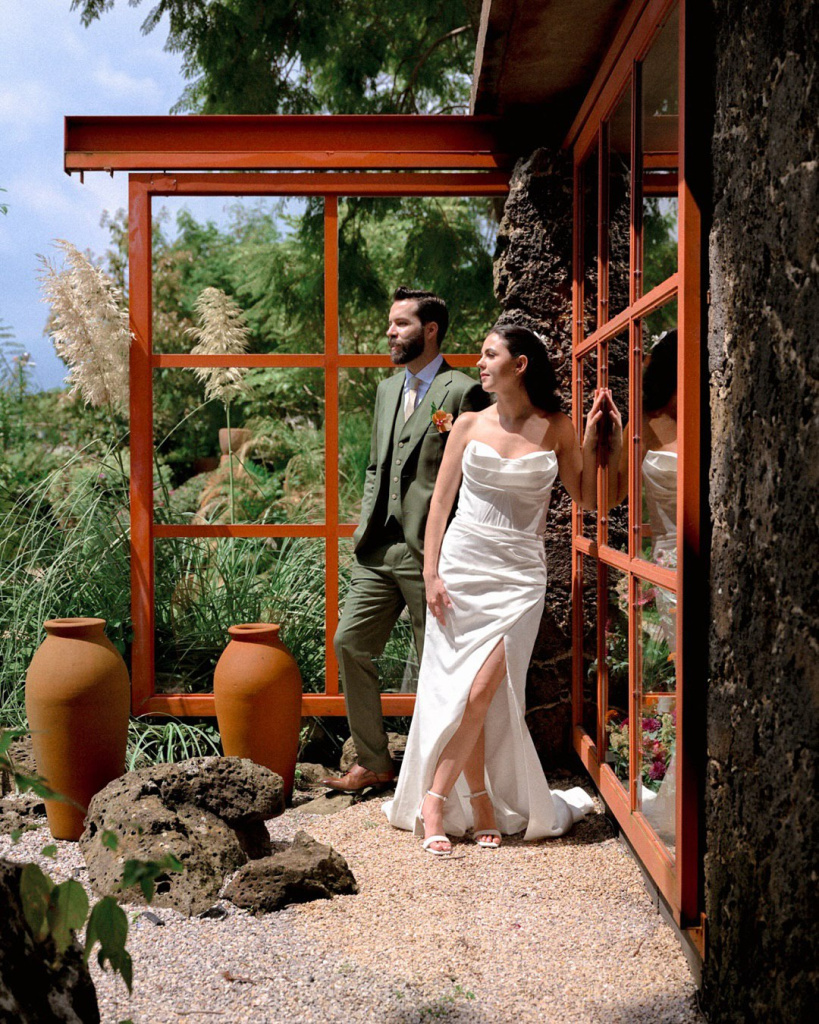
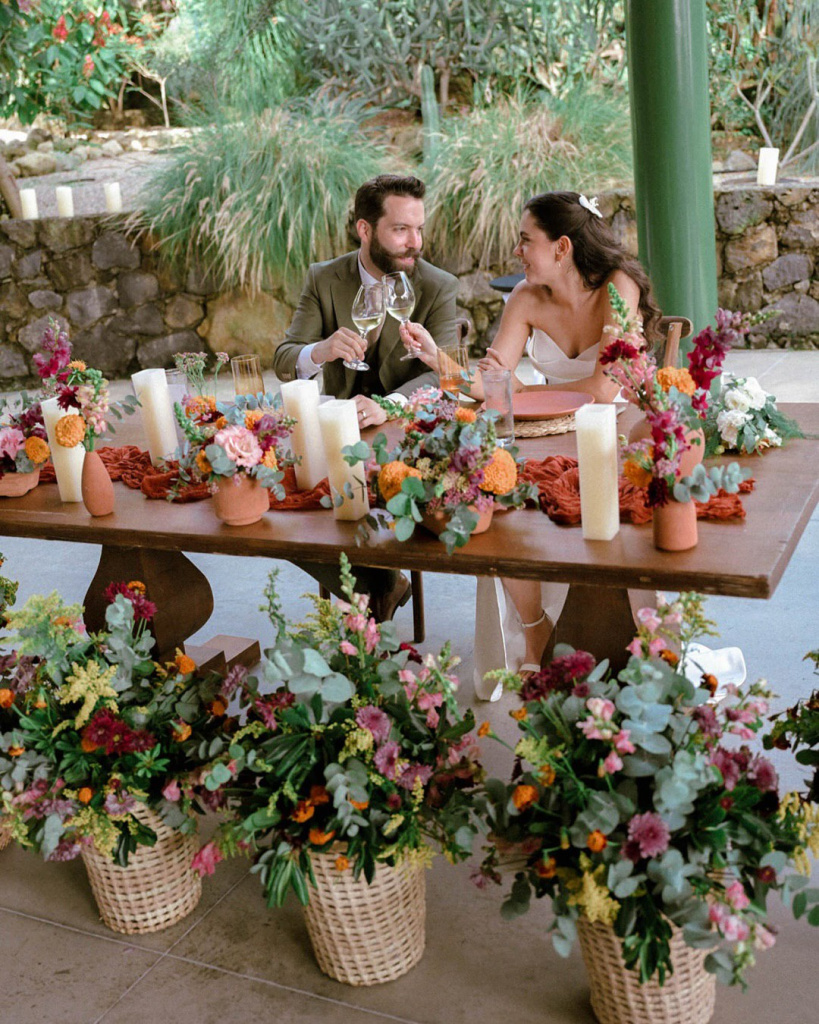
At 16 weeks out, you're laying the groundwork for everything that follows. Think of this week as building the foundation of your house – everything else depends on getting these crucial elements right. The decisions you make now will influence virtually every other aspect of your wedding planning, so it's worth taking time to think them through carefully.
Venue & Reception
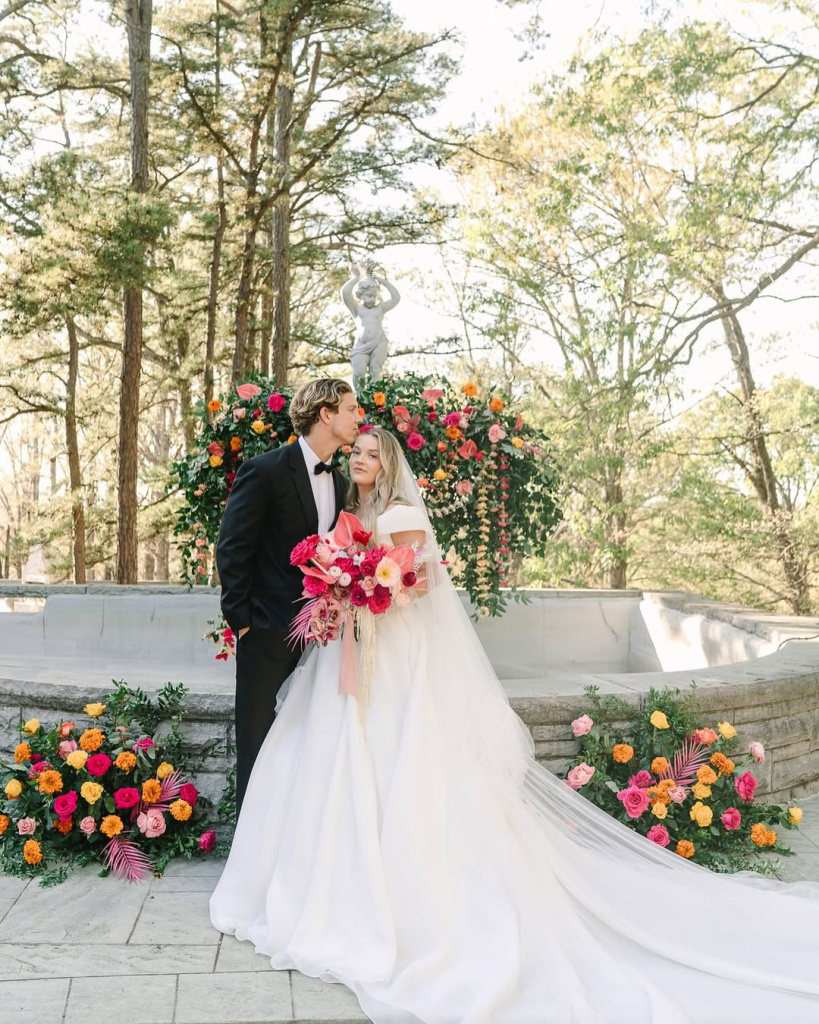
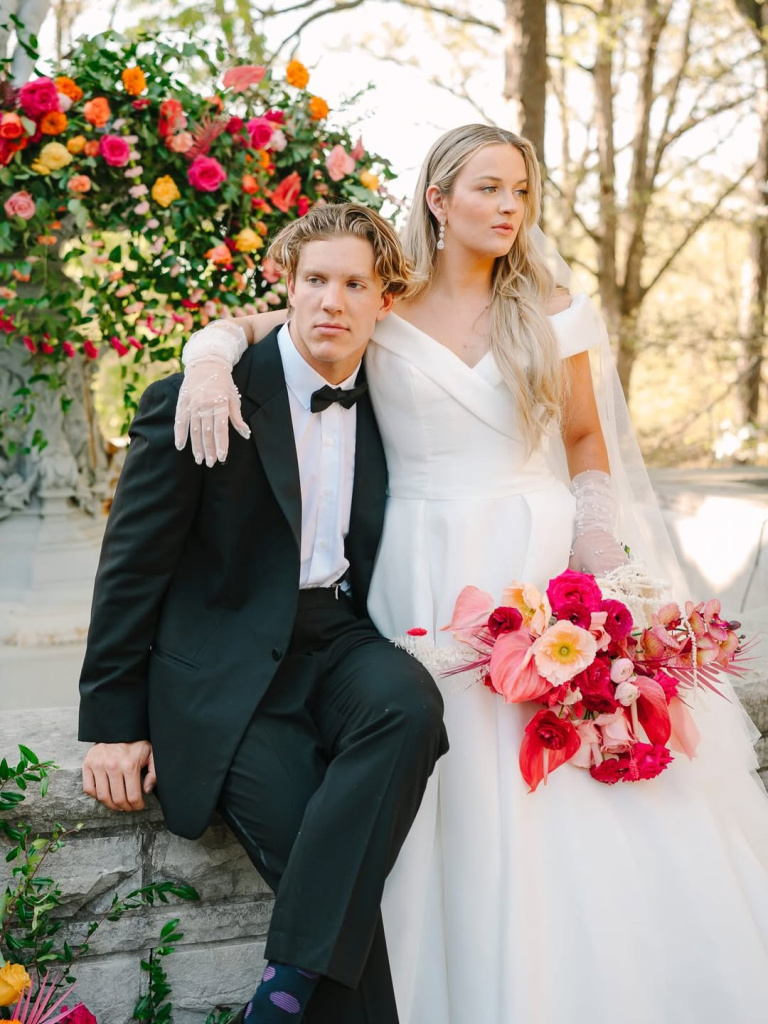
Your venue choice affects your guest capacity, catering options, decoration needs, photography opportunities, and overall wedding vibe. If you're planning during peak wedding season, availability might be limited, so flexibility will be your friend. Consider non-traditional venues like museums, parks, or even family properties that might have more availability and offer unique charm.
- Book your ceremony and reception venues – in a 16-week timeline, venue availability is your biggest concern. Consider Friday or Sunday weddings, which often cost less and have better availability. Venues also sometimes have last-minute cancellations, so don't be afraid to ask about their waiting list.
- Confirm guest capacity. Be realistic about your guest count from the start.
- Review venue policies. Some venues require specific caterers, have noise ordinances, or restrict certain decorations. Knowing these details now helps you make informed decisions about other vendors and prevents conflicts down the road.
Budget & Legal
Financial planning becomes even more critical with a compressed timeline. You'll need to make deposits quickly and won't have months to spread out payments. Create a realistic budget that includes a 10-15% contingency fund for unexpected expenses or last-minute changes.
- Finalize your wedding budget breakdown. Typical allocation: 40-45% for venue and catering, 10% for photography, 8% for music, 8% for flowers and decor, 10% for attire, 5% for transportation, and 10% for miscellaneous expenses. Adjust these percentages based on your priorities.
- Apply for marriage license. Each state and country has different requirements and waiting periods. Research this immediately, as some locations have mandatory waiting periods that could affect your timeline.
- Update wedding insurance policy. With a shorter planning timeline, insurance becomes more valuable, as it can protect you against vendor no-shows, extreme weather, or illness.


Guest Management


Your guest list drives many other decisions, from venue size to catering costs. Be decisive about this early – changing your guest count later affects everything from invitations to table arrangements.
- Send save-the-dates. With only 16 weeks, save-the-dates are crucial for out-of-town guests who need time to make travel arrangements. Include your wedding website URL where guests can find accommodation recommendations and schedule updates.
- Create a detailed guest spreadsheet. Include full names (as they should appear on invitations), addresses, email addresses, phone numbers, dietary restrictions, and relationship to you.
- Research group hotel rates. Contact hotels near your venue immediately. Many require 30-45 days' notice for group blocks, and prime locations fill up quickly.
15 Weeks Before: Vendor Confirmations


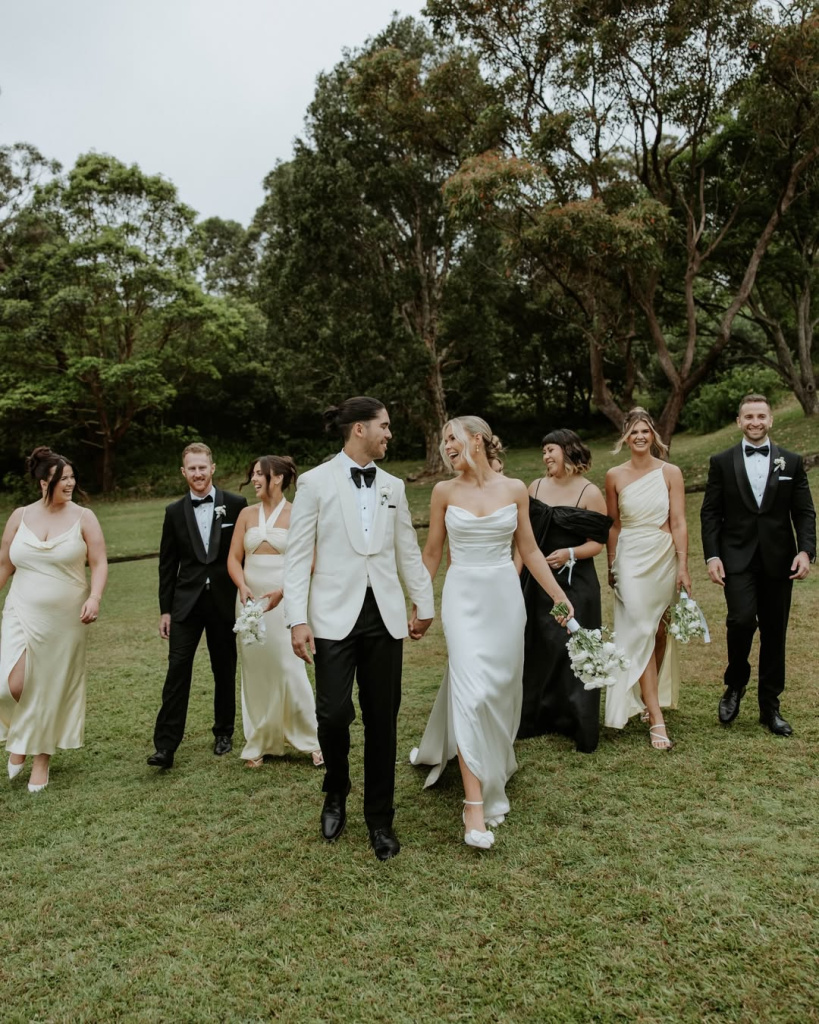
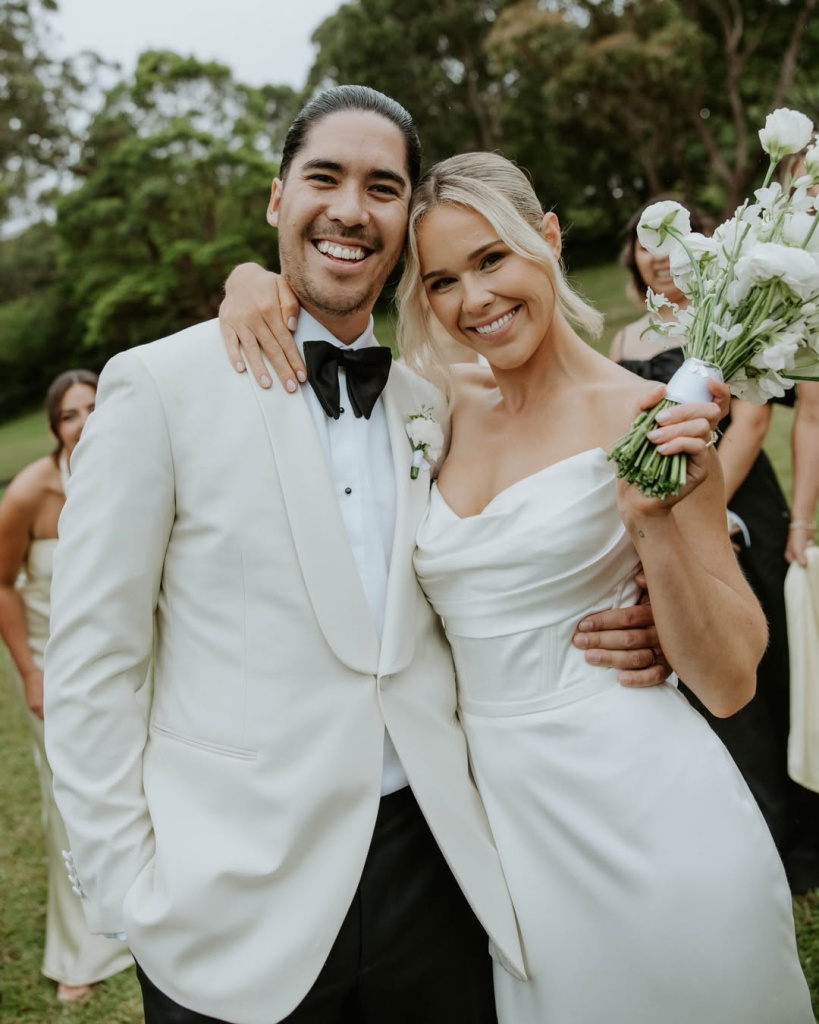
Week 15 is all about securing the creative professionals who will capture your memories and set the mood for your celebration. These vendors often book far in advance, especially photographers and musicians, so moving quickly while still making thoughtful choices is essential.
The vendors you choose should align with your vision and personality as a couple. Look beyond just their portfolios – consider their communication style, flexibility, and how comfortable you feel with them. You'll be spending significant time with these people on one of the most important days of your life.
Photography & Music
Photography is one investment you'll never regret prioritizing. These images will be how you remember your wedding day for decades to come. Music sets the emotional tone for both your ceremony and reception, creating the soundtrack for your memories.
- Meet with photographer for engagement session. Pay attention to how the photographer directs you, how comfortable they make you feel, and whether their editing style matches what you envisioned. Discuss your must-have shots, family dynamics, and any special moments you want captured.
- Confirm DJ/band playlist preferences. Create three lists: must-play songs, songs you never want to hear, and songs that work well for different parts of the reception.
- Book ceremony musicians. Live music during your ceremony creates a completely different atmosphere than recorded music. Coordinate timing for processional, any special readings or rituals, and recessional.


Flowers & Decor
Flowers and decorations transform your venue and create the visual story of your wedding. With a shorter timeline, you might need to be flexible about specific flower varieties based on seasonal availability, but this can also lead to beautiful, unexpected choices.
- Finalize floral arrangements. Start with your bridal bouquet and work outward. Consider which flowers photograph well, complement your dress, and fit your budget. Ceremony arrangements can often be repurposed at the reception to maximize your investment.
- Order ceremony decorations. If you're having an outdoor ceremony, consider how wind might affect your decorations.
- Plan reception centerpieces. Vary heights to create visual interest while ensuring guests can see each other across the table. Consider non-floral elements like candles, books, photos, or items that reflect your hobbies or relationship story.
- Confirm delivery timeline. Coordinate carefully with your venue about when vendors can access the space for setup. Plan for flowers to be delivered 2-4 hours before guests arrive.
Transportation
Transportation planning ensures everyone gets where they need to be on time and in style. This is especially important if your ceremony and reception are at different locations, or if you have elderly guests who might need assistance.
- Book wedding day transportation. Consider the size of your bridal party when choosing vehicles. A classic car might be romantic for just the couple, but you'll need something larger if you're traveling together with bridesmaids and groomsmen.
- Arrange guest shuttle service. If there's limited parking at your venue or you're concerned about guests drinking and driving, shuttles are a thoughtful touch.
14 Weeks Before: Attire & Beauty




Your wedding attire deserves careful attention, not just for photos, but for your comfort and confidence throughout the day. With 14 weeks to go, you have enough time for alterations but need to make decisions quickly. Remember that your wedding day will be long – potentially 12+ hours – so comfort is just as important as style.
Start thinking about your beauty routine now, too. Your skin and hair need time to adjust to new treatments, and you'll want to practice your wedding day look several times before the big day.
Wedding Dress
Schedule final dress fitting – Bring the actual undergarments, shoes, and any accessories you plan to wear. Even small details like different bra styles can affect how your dress fits. Schedule your final fitting about 2 weeks before the wedding to allow time for any last-minute adjustments.
- Select wedding shoes. Choose comfort over height, especially if you'll be standing for long periods or walking on grass or uneven surfaces. Buy your shoes at least a month before the wedding so you can break them in gradually. Consider having a backup pair of comfortable flats for dancing.
- Purchase wedding undergarments. Invest in professional fitting if needed, especially for strapless or backless dresses. Consider comfort for the entire day – you'll be wearing these for many hours.
Rings & Accessories
- Pick up wedding rings. Try them on together and check that any engraving is correct and properly spelled.
- Select jewelry and accessories. Choose pieces that complement your dress without overwhelming it. Consider your neckline when selecting necklaces, and think about whether you'll want to remove heavy earrings later in the evening. Don't forget about jewelry for the groom – cufflinks, watch, or other meaningful pieces.
- Choose something borrowed and something blue. These traditions can be meaningful ways to include family heirlooms or honor loved ones.

13 Weeks Before: Menu & Catering Details


Food and beverage planning involves much more than just selecting dishes. You're creating an experience for your guests that reflects your personalities and hospitality style.
Food & Beverage
- Finalize catering menu. Balance familiar favorites with dishes that reflect your personalities or heritage. Consider the time of day and length of your reception when planning courses.
- Plan signature cocktails. Choose drinks that tell your story. Limit yourself to 1-2 signature drinks to keep bar service efficient.
- Order wedding cake and desserts. Your cake design should complement your overall wedding aesthetic. Consider alternatives like cupcakes, pie bars, or dessert stations if they better reflect your style.
- Arrange vendor meals. Your photographer, DJ, and other vendors will be working throughout your reception and need to eat.


Reception Details
- Plan reception timeline. Work backward from your desired end time. Factor in cocktail hour, dinner service, speeches, cake cutting, and dancing. Leave buffer time between activities – running behind schedule creates stress and affects photo opportunities. Share this timeline with all vendors so everyone stays coordinated.
- Confirm table arrangements. Round tables encourage conversation and work well for most venues, while long tables create a more intimate, family-style atmosphere. Consider your venue's layout and guest count when deciding on table sizes. Eight-person tables are often ideal – large enough to be social but small enough for everyone to talk.
- Select linens and place settings. Consider your venue's existing decor and your color scheme. Textured linens add sophistication, while colored linens can tie into your theme.
- Plan children's activities. If you're inviting families with children, consider their needs. Kids' meals with familiar options, activity bags with crayons and games, and perhaps a designated kids' area can help parents relax and enjoy your celebration.
12 Weeks Before: Invitations & Stationery


Your wedding invitations are your guests' first real glimpse into your wedding style and set expectations for the celebration. With 12 weeks to go, you need to get these ordered and addressed quickly so they can go out with plenty of notice for your guests.
Wedding Invitations
Order and address wedding invitations. Include all necessary information: who's hosting, who's getting married, when, where, and RSVP details. Mail them 6-8 weeks before your wedding date. For destination weddings or holiday weekends, send them 10-12 weeks in advance. Create a spreadsheet to track RSVPs as they come in, making it easier to follow up with non-responders.
Day-of Stationery
- Design ceremony programs. Include your names, wedding date, order of ceremony, wedding party introductions, and any readings or special music. Add a thank you message to your guests and perhaps a memorial section for loved ones who can't be with you.
- Order reception stationery. Menu cards showcase your food selections and can include cocktail information. Place cards help guests find their seats and can double as favors if printed on nice cardstock. Table numbers or names can reflect your interests – favorite places you've traveled, meaningful dates, or shared hobbies.
- Plan signage needs. A welcome sign sets the tone as guests arrive. Directional signs help guests navigate your venue, especially important for outdoor or large venues. Bar menus list your signature cocktails and available options. Bathroom basket signs explain the amenities you've provided for guest comfort.
- Prepare thank you cards. Order these now so you can start writing them immediately after your wedding while memories are fresh.
11 Weeks Before: Legal & Practical Matters


The practical aspects of getting married require attention to detail and proper timing. Legal requirements vary significantly by location, so research your specific situation thoroughly. This week focuses on the administrative tasks that ensure your marriage is legally valid and sets you up for a smooth transition into married life.
- Complete marriage license application. It is typically valid for 30-90 days, so time your application accordingly.
- Update name change documents. If you're planning to change your name, start gathering the documents you'll need. Create a checklist and tackle these systematically after your wedding.
10 Weeks Before: Rehearsal & Pre-Wedding Events



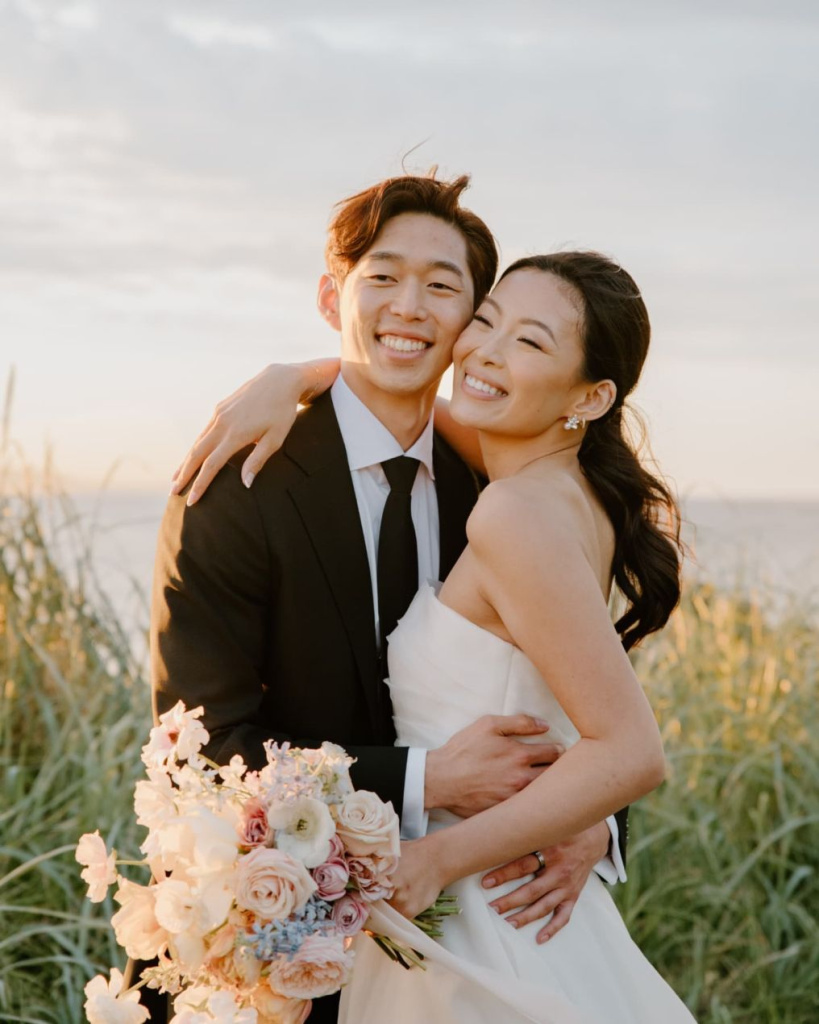
Pre-wedding events set the tone for your wedding celebration and give you opportunities to spend quality time with your wedding party and families. They also serve practical purposes – they're opportunities to distribute gifts, share important information, and handle any last-minute coordination with your wedding party.
- Plan rehearsal dinner. Choose a venue that's convenient to your ceremony location and can accommodate your group comfortably. The rehearsal dinner traditionally includes the wedding party, immediate families, and anyone participating in the ceremony (officiant, readers, musicians). Keep the atmosphere relaxed and intimate.
- Finalize bachelor/bachelorette parties. Coordinate these events for at least one week before your wedding to allow recovery time.
- Plan a welcome party. This optional event is especially nice for destination weddings or when many guests are traveling from far away.
- Prepare welcome bags. Fill these with local treats, bottled water, pain reliever, antacid, mints, your wedding timeline, local attraction information, and emergency contact numbers.
9 Weeks Before: Final Vendor Coordination


With 9 weeks to go, your vendor team should be fully assembled and ready to execute your vision. This week focuses on ensuring everyone is aligned, understands their responsibilities, and has the information they need to work together seamlessly on your wedding day.
Vendor Timeline
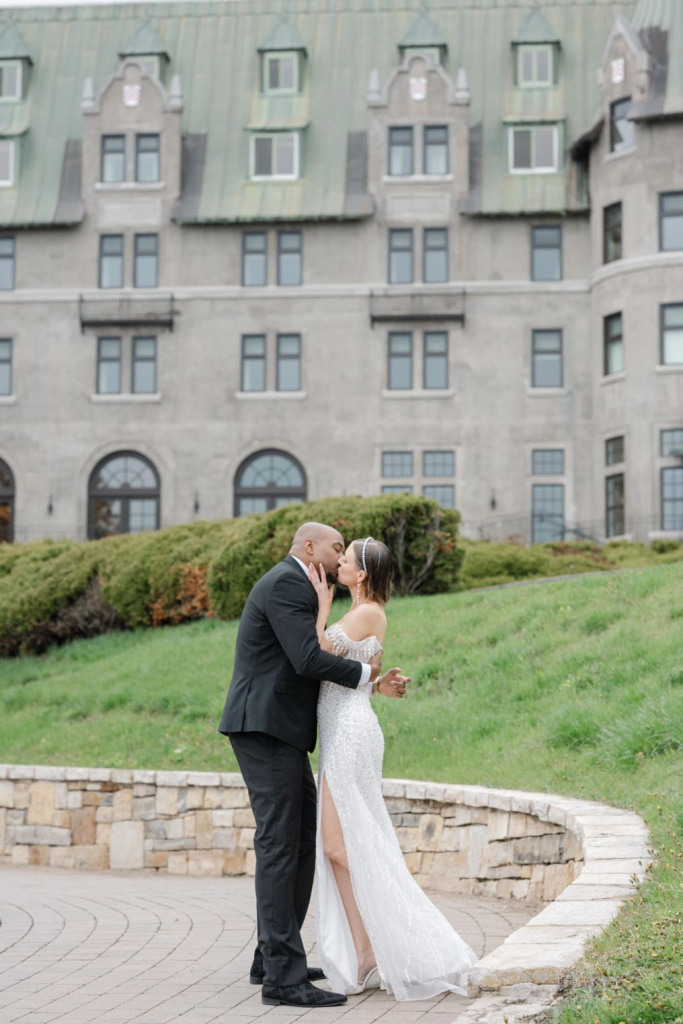
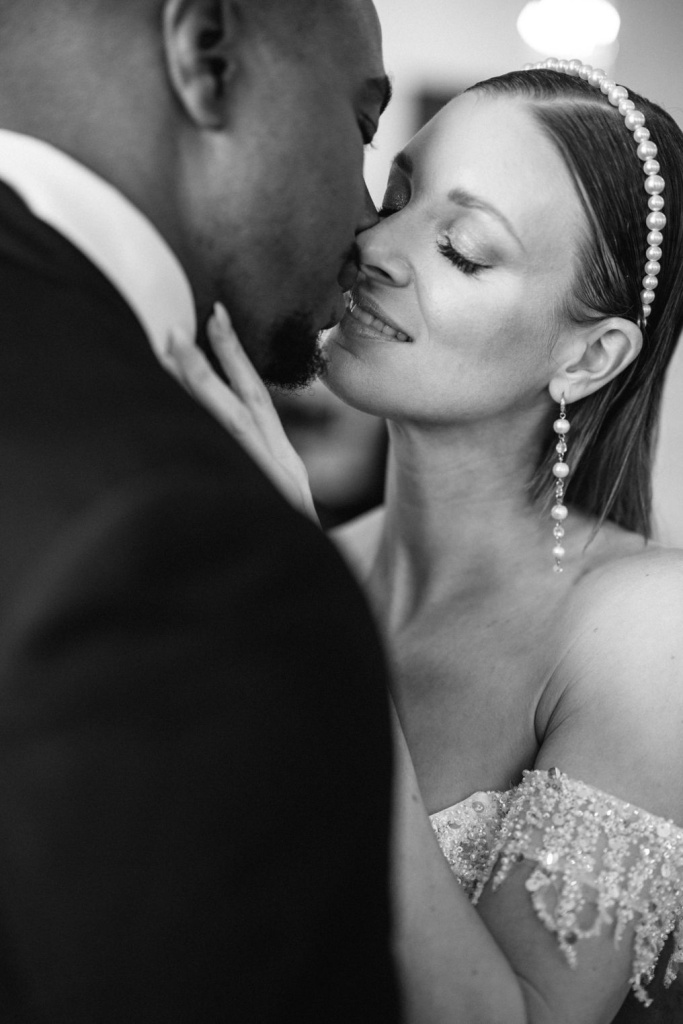
- Create a detailed vendor timeline. Start with your ceremony time and work backward and forward, noting when each vendor needs to arrive, set up, and break down.
- Confirm vendor contact information. Collect primary and backup phone numbers for each vendor, including key team members who will be at your wedding. Share your timeline and contact list with everyone so they can coordinate directly if needed. Include your wedding planner or day-of coordinator's information as the central point of contact.
Payment Schedule
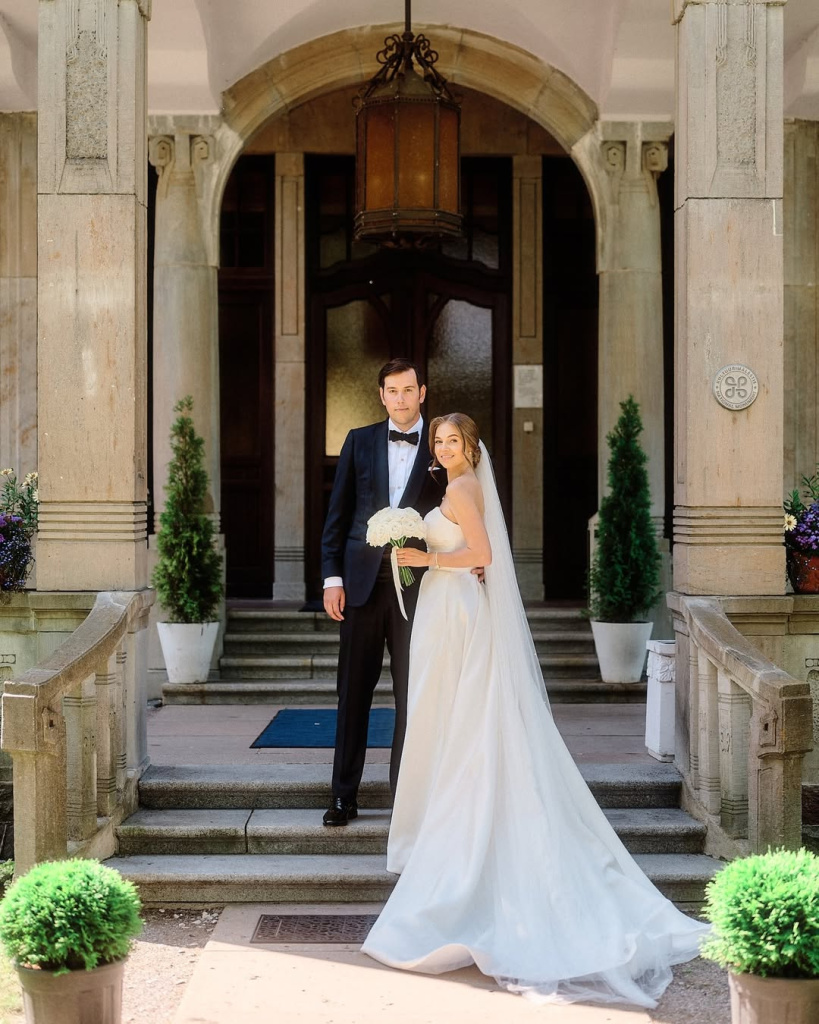
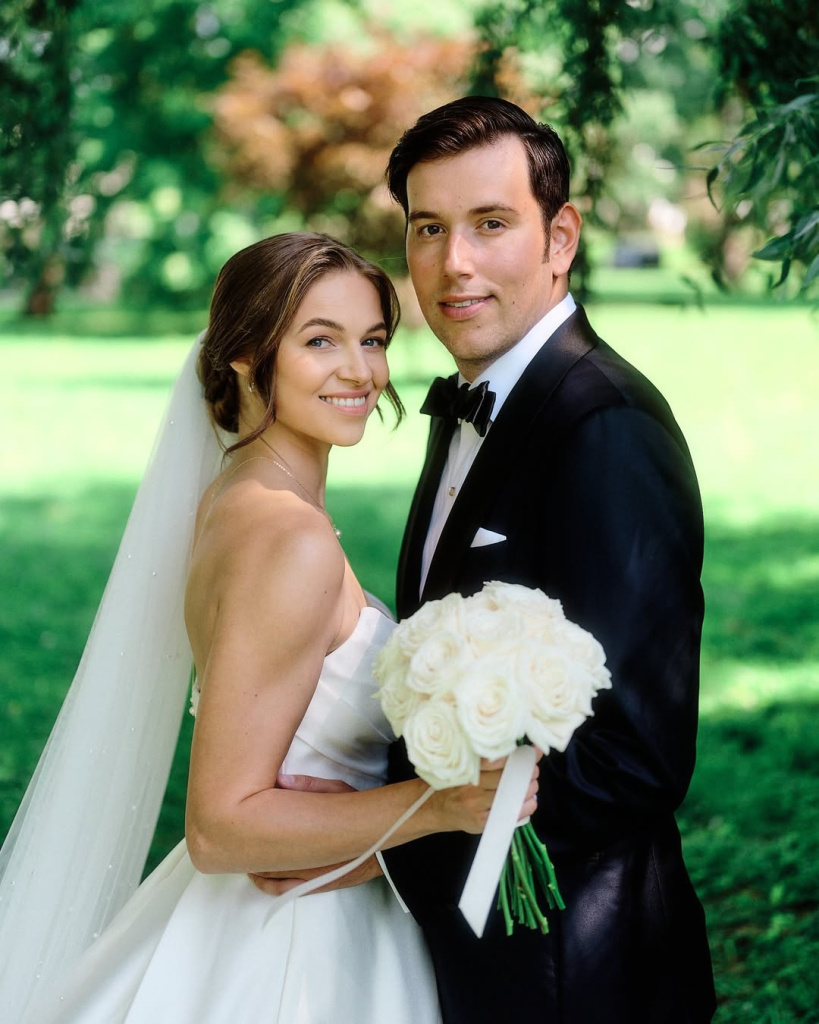
- Prepare final payments – Many vendors expect final payment on the wedding day, often in cash. Prepare labeled envelopes with exact amounts and any gratuities. Include a thank you note in each envelope expressing your appreciation for their service.
- Confirm gratuity amounts. Research standard tipping practices in your area. Typical guidelines: 15-20% for caterers (often built into contracts), $50-150 for photographers, $20-50 per musician, $1-5 per guest for bartenders, and $50-200 for wedding planners. Adjust based on service quality and your budget.
- Designate payment handler. Choose a reliable person (often your wedding planner, parent, or responsible friend) to handle payments and tips on your wedding day.
8 Weeks Before: Final Details & Backup Plans


Weather contingencies and backup planning become crucial at this stage. Even the most meticulously planned weddings can encounter unexpected challenges, and having alternatives ready reduces stress and ensures your celebration continues smoothly regardless of what happens.
Weather & Contingencies
- Plan for weather scenarios. If you're having any outdoor elements, develop specific backup plans for rain, extreme heat, or wind. Tent rentals, umbrellas, fans, or heaters might be necessary.
- Create a backup timeline. Develop alternative schedules for different weather scenarios. Share these backup plans with key vendors so everyone knows the alternatives.
- Confirm vendor rain policies. Understand how weather affects each vendor's services.
Wedding Party Coordination
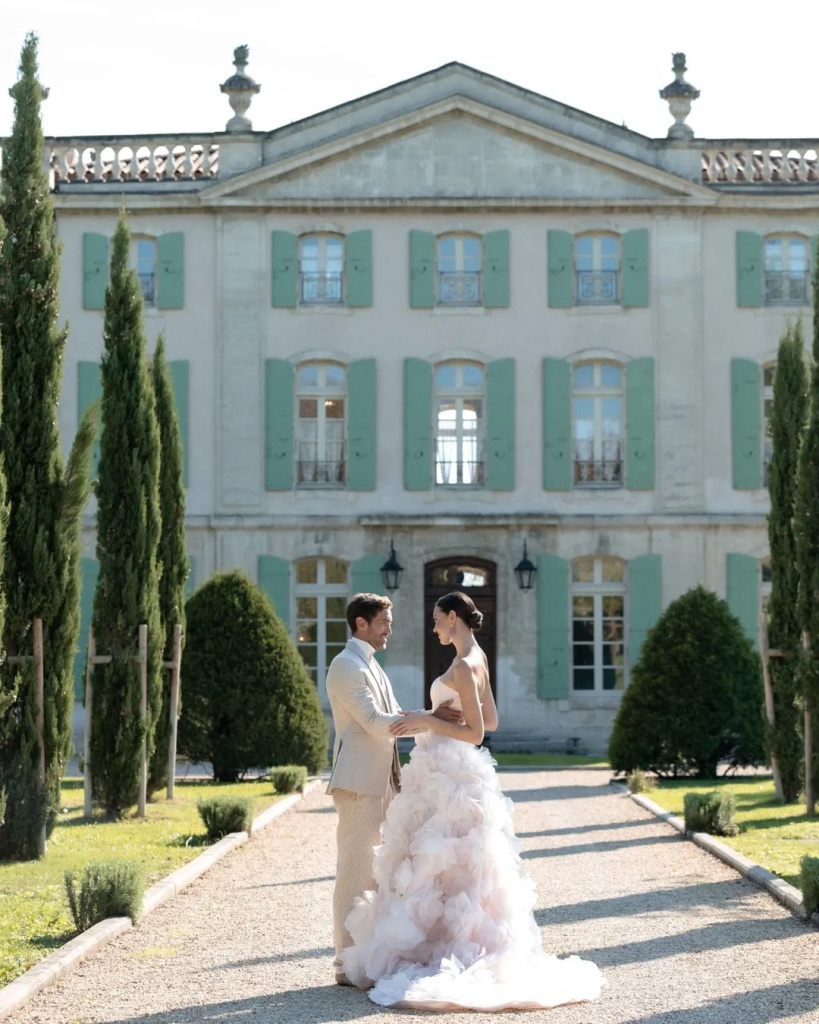
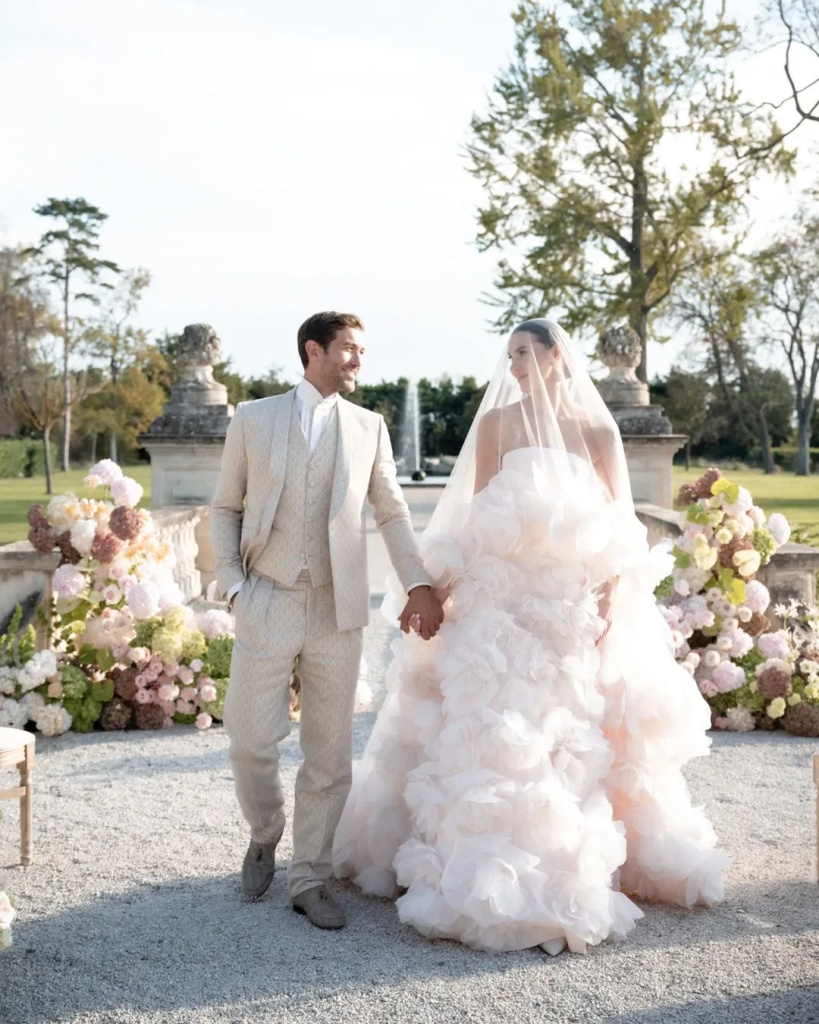
- Distribute wedding party timeline. Provide each member with a detailed schedule of their responsibilities, including when to arrive for photos, where to be during the ceremony, and any special duties during the reception.
- Plan getting-ready logistics. Determine where the wedding party will prepare, what amenities will be available, and who needs to be there when. Plan for food, beverages, and music to keep everyone comfortable and energized.
- Assign wedding day responsibilities. Designate specific people to handle important items: someone to carry the rings, distribute programs, manage the guest book, coordinate family photos, and handle any reception logistics.
7 Weeks Before: Personal Preparations


Your physical and emotional well-being become increasingly important as your wedding approaches. The choices you make now about health, stress management, and self-care will directly impact how you feel and look on your wedding day. This is also the time to focus on your relationship and ensure you're both managing wedding stress in healthy ways. Remember that the wedding is just one day – your marriage is what really matters.
- Maintain healthy routine. Consistent sleep, regular exercise, and nutritious meals support both your physical appearance and emotional resilience. Aim for 7-8 hours of sleep nightly and incorporate stress-reducing activities like walks, yoga, or meditation into your daily routine.
- Stay hydrated. Proper hydration improves your skin's appearance, energy levels, and overall well-being. Limit alcohol and caffeine, which can dehydrate you and affect sleep quality.
- Avoid major life changes. This isn't the time for dramatic haircuts, new skincare regimens, extreme diets, or major lifestyle changes.
- Schedule quality time together. Plan regular date nights or activities that don't involve wedding planning. This helps you maintain your connection and remember why you're getting married in the first place.
- Plan post-wedding transition. Discuss how you'll handle the post-wedding period, including thank you card writing, name change processes, and settling back into normal routines.
6 Weeks Before: Final Confirmations



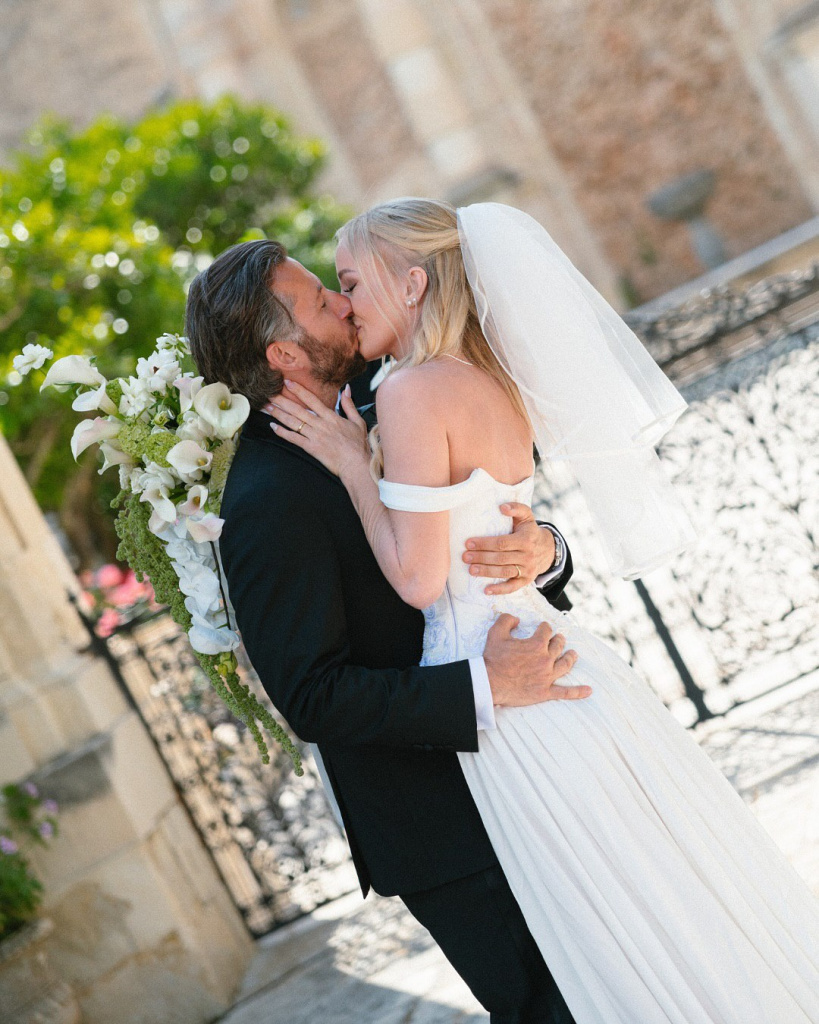
This week is about dotting all the i's and crossing all the t's. Every vendor should receive final confirmations of services, timing, and special requests. Clear communication now prevents misunderstandings and ensures everyone delivers exactly what you're expecting.
- Confirm all vendor details. Contact each vendor to review services, timing, setup requirements, and any special requests. Confirm arrival times, contact information for the day of, and any last-minute changes. Document these conversations in writing to prevent miscommunications.
- Confirm delivery addresses. Flowers might go to your getting-ready location while the cake goes directly to the reception venue. Provide clear addresses, contact names, and timing windows for each delivery. Include backup contact information in case of delivery issues.
- Send final details to out-of-town guests. Update your wedding website with weather forecasts, schedule confirmations, local recommendations, and any last-minute changes.
5 Weeks Before: Ceremony Rehearsal




The rehearsal is your opportunity to practice the ceremony flow and ensure everyone understands their roles. This reduces anxiety for both you and your wedding party while identifying any potential issues that need addressing before the actual ceremony. Use this time to finalize ceremony details and make any last-minute adjustments to timing or positioning. The more prepared everyone feels, the more relaxed and joyful your actual ceremony will be.
- Conduct full ceremony rehearsal. Practice the entire ceremony from processional music to recessional.
- Time each element. Use a stopwatch to time the processional so your musician knows exactly how long to play. Practice readings aloud to ensure they're the right length and that readers are comfortable with pronunciation and pacing. This prevents awkward pauses or rushed moments during the actual ceremony.
- Review special ceremony elements. Practice lighting unity candles in case of wind, coordinating sand ceremonies, or any cultural traditions that require specific timing or positioning. Run through these elements multiple times until everyone feels confident.
4-1 Weeks Before: Final Countdown




The final month requires a delicate balance between completing remaining tasks and protecting your energy for the wedding day itself. These last weeks should focus on final preparations while allowing time for rest and connection with your partner. Avoid the temptation to make major changes during this period. Trust the planning you've done and focus on fine-tuning rather than overhauling any elements of your celebration.
- Pick up all rentals and orders. Schedule appointments to collect your wedding dress, tuxedos, any rental items, and special orders. Try everything on one final time to ensure proper fit and identify any last-minute issues. Steam or press garments immediately and hang them properly to prevent wrinkles.
- Confirm final guest count with caterer. Provide your caterer with the most accurate headcount possible, including any dietary restrictions or special meal requests.
- Pack honeymoon luggage. Don't leave this until after the wedding when you're exhausted and emotional. Pack everything except last-minute items and have your bags ready to go.
- Final beauty appointments. Schedule your last haircut or trim at least two weeks before the wedding to allow time for any adjustments.
- Break in wedding shoes. Wear your wedding shoes around the house for increasingly longer periods each day. Add cushioned insoles if needed for comfort.
- Confirm the weather forecast. Start monitoring weather predictions and make final decisions about any weather-dependent elements.
- Pack day-of bag. Prepare everything you'll need at the venue: emergency kit, timeline, vendor contact list, marriage license, rings, payments and tips, phone chargers, snacks, water, comfortable shoes, and any touch-up makeup or hair products.

Your Detailed Checklist for the Wedding Day



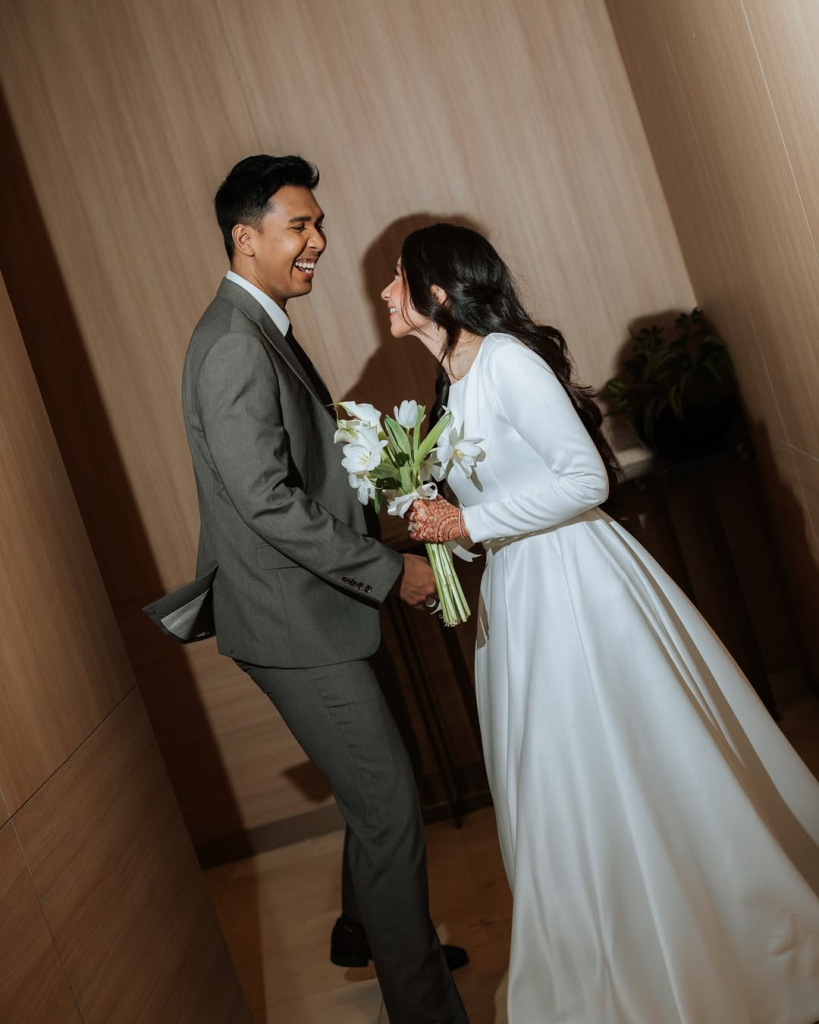
While it's natural to feel some nerves, trust in your preparation and focus on enjoying every moment of this special celebration. Remember that your wedding day is about celebrating your love story with the people who matter most to you. Small imperfections won't be noticed by your guests and won't matter in your memories. Stay present, be flexible, and embrace the joy of the day.
- Eat a nutritious breakfast. Choose foods that give you sustained energy without making you feel too full. Include protein and complex carbohydrates to maintain stable blood sugar throughout your long day.
- Stay hydrated throughout the day. Keep water nearby and sip regularly, especially if you're drinking coffee or getting nervous.
- Final touch-ups with hair and makeup. Allow time for any last-minute adjustments and photos of the getting-ready process. Have your makeup artist available for touch-ups throughout the day.
- Put on a wedding dress and accessories. Take your time with this special moment. Consider having your mother, sister, or closest friend help you into your dress for a meaningful experience you'll always remember.
- Take photos with the wedding party and family. Capture these precious moments before the ceremony when everyone is fresh and excited. These photos often become some of the most treasured memories.
- Focus on your partner and the meaning of your vows during the ceremony. This is about the two of you and the commitment you're making. Let everything else fade into the background and be fully present for this sacred moment.
- Eat something during cocktail hour. You'll need energy for the long evening ahead.
- Greet as many guests as possible. While you can't have long conversations with everyone, make an effort to personally thank people for coming and share a moment with your most important guests.
- Take mental snapshots of special moments. Your photographer will capture the big moments, but take time to notice small details: your grandmother's smile, friends laughing together, the way the room looks during your first dance.
- Thank vendors and venue staff. Express your gratitude to the people who made your day special. Their hard work contributed significantly to your celebration's success.
- Collect cards and gifts. Designate responsible family members to gather cards from the gift table and ensure nothing gets left behind. Keep track of who gave what for thank you card writing.


Planning a wedding in 16 weeks requires decisiveness, organization, and the ability to prioritize what truly matters to you as a couple. While the timeline is compressed, it's absolutely possible to create a meaningful, beautiful celebration that reflects your love story and brings joy to everyone who attends.
Throughout this process, remember that your wedding day is just the beginning of your marriage. The most important elements are the commitment you're making to each other and the love and support of your family and friends who gather to celebrate with you. Every other detail, while fun to plan, is secondary to these fundamental truths.







